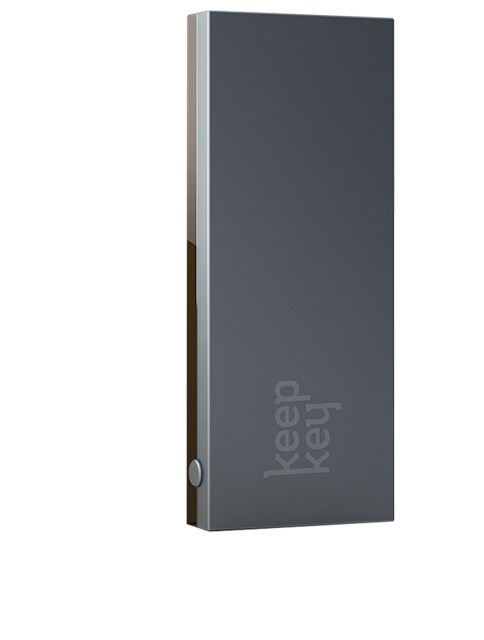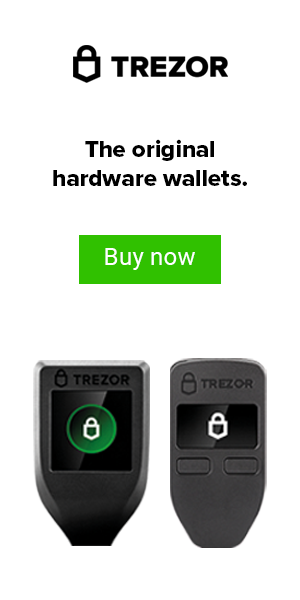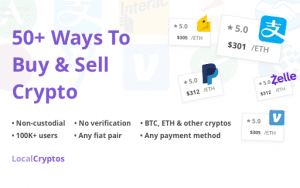- CRYPTO HARDWARE WALLETS
- NGRAVE ZERO
- COMPARE HARDWARE WALLETS
- KEEPKEY VS TREZOR VS LEDGER
- TREZOR VS TREZOR REVIEW
- KEEPKEY VS LEDGER NANO X
- LEDGER NANO X VS ELLIPAL TITAN
- LEDGER NANO X VS TREZOR MODEL T
- D’CENT VS LEDGER NANO X
- SAFEPAL VS LEDGER NANO S
- BC VAULT VS LEDGER NANO X
- BC VAULT VS D’CENT
- BC VAULT VS KEEPKEY
- SECUX V20 VS LEDGER NANO X
- D’CENT VS SAFEPAL
- SAFEPAL VS BC VAULT
- SAFEPAL VS KEEPKEY
- SAFEPAL VS ELLIPAL TITAN
- ELLIPAL TITAN VS KEEPKEY
- ELLIPAL TITAN VS BC VAULT
- ELLIPAL TITAN VS D’CENT
- KEEPKEY
- LEDGER NANO S
- LEDGER NANO X
- TREZOR ONE
- TREZOR MODEL T
- ELLIPAL TITAN
- ELLIPAL 2.0 (1st GEN)
- KEYSTONE PRO
- COOL WALLET S (WIRELESS)
- SAFEPAL S1
- D’CENT
- BC VAULT
- SECUX W10
- SECUX W20
- SECUX V20
- SECUX NIFTY
- KEEVO WALLET
- CYPHEROCK X1
- RECOVERY SEED BACKUPS
- PRODUCT REVIEWS
- VIDEOS
- RESOURCES
- CONTACT US
- Logo
- Facebook




- Instagram






- Twitter






- Youtube






- FREE E-BOOK






Exchange Hacks
CryptoTrader.Tax Review (2020) | Don’t Let The IRS Steal Your Crypto! (Discount Below)
CryptoTrader.Tax Review – A Detailed Look At This Crypto Tax Reporting Platform Crypto tax coverage can be a difficult and also taxing procedure, with individuals generally making purchases throughout numerous various systems and also complication over crypto tax policies.Nonetheless, it’s critical that individuals obtain their tax obligations done promptly to stay clear of fines and also future effects. When finishing their crypto tax obligations, individuals have a couple of various alternatives readily available to them.
Now, as you know, I believe that taxation is theft. I do not believe that my money spent (crypto or otherwise) should be paid to the government so they can piss it away and give to someone who isn’t willing to create a life for themselves. Having said that, we all know that taxes are unavoidable (for now) and to continue to run a business and maintain any semblance of order in this world, It’s better to correctly calculate your own taxes via this tool, as opposed to letting the government do them for you.
In fact, they don’t even know what their own regulations and rules are, as they left open to interpretation. I am telling you, do this for our own good!
What Is CryptoTrader.Tax And Why Do I Need It?
These consist of computing and also submitting their tax obligations themselves working with an accounting professional or making use of a specialized crypto tax reporting system One such crypto tax reporting system is CryptoTrader Tax which defines itself as the most convenient and also most trusted means to prepare your cryptocurrency tax obligations To figure out if it meets these cases I examined out the system and also have actually given a comprehensive testimonial for our viewers listed below Import Your Trades From Any Exchange.
One of the intricacies of attempting to compute your crypto tax obligations alone is taking care of the substantial quantity of purchases made throughout numerous crypto exchanges. A buck worth for each and every profession have to be developed in order to compute any kind of gains or losses properly.
Therefore when managing a great deal of professions this comes to be a lengthy and also laborious job with mistakes usually made CryptoTrader Tax permits you to promptly import your professions from any kind of exchange by either making use of the API import device or posting your profession background documents.
CryptoTrader.Tax vs. CoinTracking: Which Is Better?
This will certainly allow you to successfully take care of every one of your trading information on one specialized tax platform. Also, when you post your professions, CryptoTrader.Tax instantly develops a reasonable market price and also price basis for them making use of historic information. This substantially raises the rate of computing your tax obligations and also dramatically minimizes the threat of errors.
On top of your profession information, you can additionally include various other crypto revenue from points like airdrops, presents, and also mining. Generating a Tax ReportAfter importing every one of your information, you after that examine your professions prior to creating your record.
For each and every tax year, CryptoTrader.Tax creates an Audit Trail Report, Cryptocurrency Income Report, Short & & Long Term Sales Report, IRS Form 8949, and also an End of Year Positions Report.Generating Tax ReportCryptoTrader.Tax sustains the FIFO, LIFO, and also HIFO accountancy approaches, indicating individuals from nearly throughout the globe can utilize this system for their cryptocurrency tax obligations.
Customers can additionally have their gains and also losses computed in any kind of cryptotrader.tax vs bitcoin.tax fiat money When Cryptotrader.tax price computing your tax obligations CryptoTrader Tax makes use of the very same approaches that tax specialists make use of.
It makes sure that you are paying the right quantity and also not paying too much on your tax obligations. CryptoTrader.Tax has integrated tax-loss harvesting devices to aid you minimize and also counter your resources gains.The system additionally permits you to import your resources gains and also losses straight right into the online or desktop computer variations of TurboTax and also various other tax systems.
Is CryptoTrader.Tax Compliant With The IRS?
CryptoTrader.Tax is Level 1 PCI certified and also makes use of SSL security to make sure that your information on the system is secure.CryptoTrader.Tax PricingCryptoTrader.Tax costs for records as a single settlement per tax period. It has a tiered rates framework in position indicating the even more professions you made throughout the tax period the a lot more you pay this permits those with a handful of professions to pay a marginal quantity and also also for those that call for the cryptotrader.tax vs bitcoin.tax Unrestricted rate the rates is still really affordable.
When you have actually acquired a record, you can make unrestricted alterations to it for that year. CryptoTrader.Tax’s rates alternatives are as adheres to: CryptoTrader.Tax Pricing Plans Users can spend for CryptoTrader.Tax making use of a Visa, MasterCard, or American Express credit/debit card. Nonetheless, it’s crucial to recognize that you just need to spend for CryptoTrader.Tax when you prepare to create your tax record.
This indicates you can develop an account, import your information, and also examine your purchases for free.
Note: If you require records for 2017 or in the past, you can obtain a 15% price cut off the regular record price.
CryptoTrader.Tax Final Verdict
CryptoTrader.Tax uses a complete money-back warranty on any kind of acquisitions. That indicates if you are not pleased with your record you can obtain a complete repayment as long as you request it within days of acquiring How to Create an AccountIt s fast and also very easy to cryptotrader.tax vs bitcoin.tax develop an account at CryptoTrader Tax with the alternative to develop either an Individual Account or a Tax Professional Account. To develop an Individual Account, customers merely require to include an e-mail address and also develop a password.
Tax specialists require to supply their name e-mail and also develop a password CryptoTrader Tax Signing up for an Individual AccountThis procedure takes secs and also when you have actually developed your account cryptotrader.tax price you can promptly begin incorporating the exchanges you make use of publishing your information and also making use of the systems various devices.
You do not require to supply any kind of bank card or settlement information when developing an account OverviewCryptoTrader Tax permits any individual to conveniently take care of cryptotrader.tax price and also compute their crypto tax obligations at an affordable rate. What can take hrs or perhaps days can be carried out in mins on the CryptoTrader.Tax system.
Is CryptoTrade.Tax Legit?
In addition to that, CryptoTrader.Tax makes sure that your Bitcoin tax record is exact and also certified, alleviating the threat of blunders and also paying too much on your crypto taxes. CryptoTrader.Tax Overview. CryptoTrader.Tax’s CEO David Kemmerer was also a visitor on Anthony Pompliano’s ‘Off the Chain’ podcast, where he went over the intricacies of cryptocurrency tax obligations. For those that want to pay attention to this meeting, you can locate it here.
If, at any kind of factor, a customer requires help throughout the tax reporting procedure, CryptoTrader.Tax has a specialist assistance group in position that will certainly obtain your questions solved swiftly. Generally, CryptoTrader.Tax is an exceptional selection for both people and also tax specialists that are seeking to make the tax reporting procedure a lot more reliable.
What do you think? Is there a better tax tracking software for Crypto taxes out there? Let us know in the comments below!
Cheers,
The Crypto Renegade
Crypto VPN | 2 Best VPN’s To Use When Sending, Receiving, Or Exchanging Bitcoin
In this article, I am going to share with you why it’s best to use a VPN with all of your bitcoin related dealings with a crypto vpn. I recently had an experience where I was sending and receiving some bitcoin with a friend of mine and I was in a rush and I forgot to enable my VPN to process the transaction. 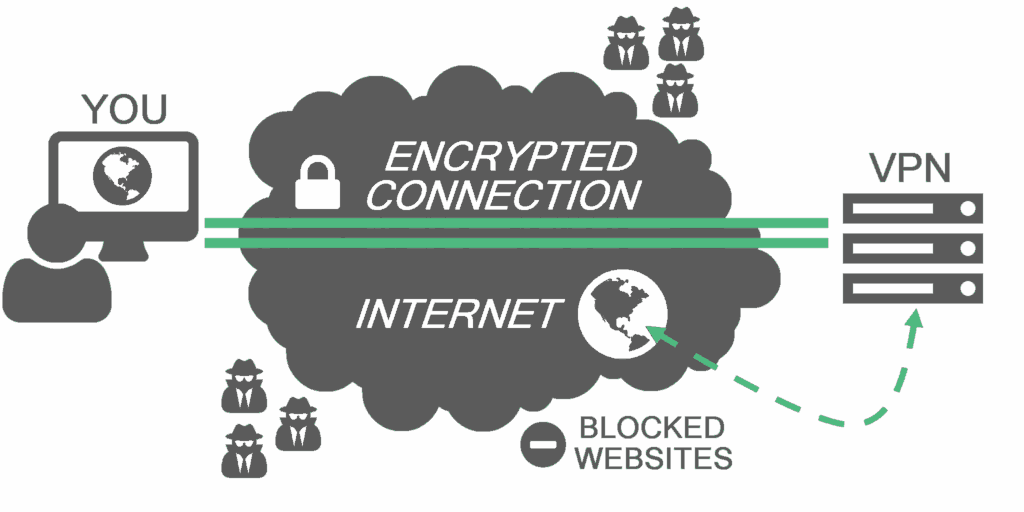

At first, I didn’t think too much of it, but then I received an email indicating that it detected me sending it from a different IP address. This was a blunt reminder that even when you aren’t conscious of it, all of your dealings on the internet are being watched and recorded by your ISP, and in some cases, even the wallet or exchange you are sending or withdrawing your coins from.
This is why using a VPN is not only important for your everyday internet browsing, but particularly when you are dealing with sending, receiving, or exchanging bitcoin or other cryptocurrencies. Before I get into the meat of the article, I just wanted to remind my readers that I recently wrote an e-book that details the 5 best ways to secure your cryptocurrency. This is an in-depth guide that goes into the best tips and tricks for managing your cryptocurrency and specifically the best practices on how to store and diversify your holdings. Click HERE to check it out, it’s free!
So let’s get right into what a VPN is, and why you need one! Let’s go!
What Is A VPN?
A VPN (or Virtual Private Network) is designed to obfuscate or block your current IP address, which includes your ISP and your current location from being tracked online. Why would I need this? Well, as you probably already know, the internet is an amazing place, but it surely isn’t private. Your ISP is watching your web pages, knows your location, and can even report what you are watching and doing to the authorities, if they so choose. 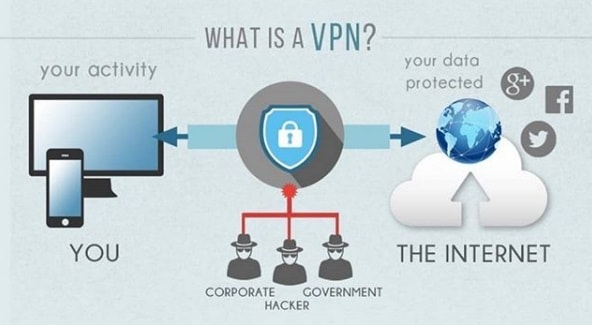

This is NOT ok, as your privacy is an unalienable right. There is no reason they need to know this information and should not be strong-armed into handing it over to the authorities for any reason. This is where a VPN comes in. VPN’s are not only used for every day internet browsing, but can also used for torrenting, streaming services (like Netflix and Hulu) and also when making any financial transactions, namely crypto transactions.
With a VPN, you can cloak your location, the website’s you access, any downloads or uploads you have engaged in, and much much more. This is ideal if you want privacy for whatever you decide to do online, and the best part is, most VPN providers don’t even log what you do, so if they are contacted by authorities, they can’t even hand over anything anyways.
Why Do I Need A VPN For Bitcoin Transactions?
As mentioned above, without a VPN, all of your interactions or actions you take online are recorded with your ISP and they log all your websites, and what you do on those websites. This means, that if they wanted to, they can see your passwords, watch your private information, and use it against you. This doesn’t mean they will, but take into consideration if they get hacked. There is nothing blocking a nefarious character from taking your personal information and using it against you.
When it comes to bitcoin and crypto transactions, privacy is the MOST important thing. Period.
Do I Need A VPN For Trading On Bitcoin Exchanges?
Yes. Most exchanges (especially U.S. exchanges like Coinbase, and Bittrex) are in bed with the government and the IRS, so they are tracking what you do, where you are, and can provide a lot of identifying information. If you consent to this when using an exchange, that’s on you, however, when you use a VPN, you can take your physical location layer out of the equation. Additionally, you may want to use services like Bitmex for leverage trading or an exchange like Bitfinex that does not allow U.S. IP addresses. This would be a work around for you to gain access to products and services that are not available in your jurisdiction.
Can I Pay For A VPN With Bitcoin Or Other Cryptocurrencies?
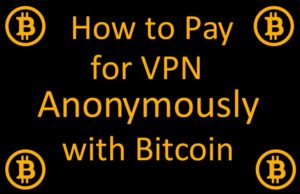

Yes. I recommend using either NordVPN or ExpressVPN, as I use both personally. They are not based in the U.S., so they are not subject to any of the regulations or over-reaching by our government, so that is a huge relief and provides peace of mind. You can click the link below to get 75% off Nord VPN and ExpressVPN below, and I believe they offer a free-trial as well and a 30-day money back guarantee!
**CLICK HERE TO BUY NORDVPN AT 75% OFF**
**CLICK HERE TO BUY EXPRESSVPN AT 75% OFF**
Additionally, you can pay in bitcoin or other cryptocurrencies when you sign up for either of these. To me, that’s a HUGE plus because it demonstrates the companies’ values and I always like to support organizations that promote using bitcoin and other crypto in every day commerce. I have a review video I did below that goes over these in a little more detail, but both are top-notch and trusted and used my millions of people for various uses. This is designed for people that value their privacy and anonymity. (Satoshi would be proud!)
Is There A Free VPN?
There is ONE that I have used in the past called Tunnel Bear, but it only allows up to 500MB per month for free. If you exceed that amount (which isn’t a lot), you will be required to upgrade and pay either a monthly or yearly fee. I used this as a starter VPN, and is the best free VPN I’ve personally used. You can use the link below to get signed up for free, and if you decide to upgrade, it will provide you 58% discount on your service. 

**CLICK HERE TO DOWNLOAD TUNNELBEAR FOR FREE**
Crypto VPN: Conclusion
Overall, you absolutely need a VPN for all of your crypto-related dealings and the options for NordVPN and ExpressVPN also have free mobile apps, so you can make sure it’s enabled on your phone if you prefer to send/receive on a mobile bitcoin wallet as well, so there is no excuse to not use one.
Trust me when I say, no matter how much of a hurry I am in, I will never forget to enable it again, and it’s just as simple as a click away, so it’s very easy to use. On a side note and on the topic of mobile apps, If you are looking for new an interesting ways to earn free bitcoin (and other cryptocurrencies), you can download the LIFE INFO APP.
This app pays you in bitcoin rewards on purchases you are making anyways, and also gives you an instant discount on everything you buy. There is no reason NOT to do this, as there is no catch, and you save money. If you’re buying these items anyway, you may as well save money and earn bitcoin for free. I will leave an in-depth review of this HERE for you to check it out and will answer more of your questions, but I strongly recommend you check it out.
What do you think? Do you use a VPN for sending and receiving bitcoin? Let me know in the comments below!
Cheers,
The Crypto Renegade
NOTE: This post may contain affiliate links. This adds no cost to you but it helps me focus on giving as much value as possible in every single post by being compensated for recommending products that help people succeed.
How To Invest In And Trade Cryptocurrencies (Beginner’s Guide)
In this article, I will go over how to invest in and trade cryptocurrencies. Cryptocurrency is a hot topic these days, especially with volume and steam picking on on price this week picking up over $7,000 per bitcoin. How many times have we heard stories of people becoming overnight millionaires and, at the same time, stories of people who lost hundreds of thousands of dollars hoping to make a quick buck?
So, if you are looking to invest in crypto in a safe manner, then this guide is for you. The purpose of this guide is to help educate individuals as much as possible and to reduce speculation in the market.
HOW TO INVEST IN CRYPTOCURRENCIES BASICS:
The very fact that you are reading this guide shows us that you are interested in investing in cryptocurrencies. These immutable and exchangeable cryptographic token promise to become a hard and non-manipulatable money for the whole world. Their advocates see a future in which Bitcoin or other cryptocurrencies will substitute Euro, Dollar and so on and create the first free and hard world currency.
Besides what was already said, there are three major good reasons to invest in cryptocurrencies.
First, because you want to hedge your net-worth against the fall of the Dollar, which is assumed by many people to inevitably happen at some time. Second, because you support the social vision behind cryptocurrencies – that of a free and hard money for the whole world. Third, because you understand and like the technology behind it.
However, there are also very bad reasons to invest in cryptocurrencies. Many people fall victim to the hype surrounding every cryptocurrency-bubble. There is always somebody captured by FOMO (fear of missing out), buying massively in at the peak of a bubble, just in hope to make quick money, while not understanding cryptocurrencies at all. That’s a bad reason. Don’t do this. Learn before you invest. Early stage investors in Bitcoin and Ethereum made millions of dollars in pure profits.
In a one-year time span from December 2016 to December 2017, Bitcoin went from $750 to a staggering $20,000! This means that anybody who invested $10,000 in December 2016, would get back a mind-numbing $133,333 in exactly 365 days. In fact, the total market cap of cryptocurrencies went all the way u pto an astounding $500 billion (half a trillion) by end of 2017.
Stories like that flooded the internet and more and more people joined the crypto hype to get a slice of that crypto pie. However, as more and more speculators flooded the market, the inevitable happened.
The market took a huge dip.
With Bitcoin taking a dip, all the other currencies took a dip, and lots of people lost their entire life savings.
In this guide, we are going to show you how you can educate yourself to make an intelligent investment. Having said that, let’s start with our first lesson.
BE OK WITH TAKING RISKS
Because the volatility of cryptocurrencies exceeds that of any other investment class, they are not a normal investment. Plus, there is always the risk that your country may outlaw cryptocurrency trading and exchange. If that’s the case, then you should make your peace with not liquidating your crypto assets, or hold them on a hardware wallet until you can use them for transactions.
So, the important takeaway here is to only risk as much money as you can afford. Like Wence Casares, CEO of Xapo, sums it up in an AMA on bitcoin.com:
“I always tell them [my family] that the second most stupid thing they could do right now is to own an amount of bitcoins they cannot afford to lose and the most stupid thing they could do would be to not own any. “
DON’T FORGET: THERE ARE OTHER COINS
Up until late 2016 Bitcoin was the cryptocurrency, and there was not much besides it. If you wanted to invest in the success of cryptocurrencies, you bought Bitcoin. Period. Other cryptocurrencies – called “Altcoins” – have just been penny stocks on shady online-markets, mostly used to keep miner’s GPUs working, pump the price and dump the coins.
However, this has changed. While Bitcoin is still the dominant cryptocurrency, in 2017 it’s share of the whole crypto-market rapidly fell from 90 to around 40 percent, and it sits around 50% as of September 2018.
There are several reasons for that. While Bitcoin remains the undisputed king of cryptocurrencies, many people have questioned its future utility. Firstly, there were new and exciting cryptocurrencies coming out secondly, Bitcoin was suffering from severe performance issues and it looked like the Bitcoin community were nowhere near to solving this problem. The block-size issue, in particular, was a huge bone of contention in the community, which ultimately led to the creation of bitcoin cash and the splitting up of the community.
So, the question is, what coins can you potentially invest in?
Well, for that you will go to coinmarketcap.com.
This website lists down cryptocurrencies in decreasing order of market cap. Market cap means the value of all token available. It is not a perfect metric, but likely the best we have to recognize the value of a cryptocurrency.
This is the reason why coinmarketcap is a useful tool to have in your hand.
WHAT IS THE UTILITY THAT THE COIN IS BRINGING INTO THE SYSTEM? DOES IT “NEED” TO EXIST?
So, you have gone through the market caps and decided on the bunch of coins that you wanted to invest in? Awesome job. However, this is where the real work begins.
The first thing that you need to do is to read their whitepapers. Now, we understand that reading PDFs may not be the most exciting of things, however, you absolutely have to put in the work beforehand before you reap any sort of benefits.
Reading the whitepaper itself will give you two tremendous benefits:
- Firstly, you will be more knowledgeable about the coin itself and learn about the utility that it is bringing into the ecosystem.
- Secondly, a poorly written whitepaper is often a good sign of knowing whether a project is worth investing or not. If the team itself can’t simply explain the true utility of their token, then it is probably not worth investing into.
A white paper is the bread and butter of any and all ICOs. According to Wikipedia. “A white paper is an authoritative report or guide that informs readers concisely about a complex issue and presents the issuing body’s philosophy on the matter. It is meant to help readers understand an issue, solve a problem, or make a decision.” 

In simpler terms, a white paper can tell potential investors everything they need to know about the project. This is the reason why an ICO which doesn’t have a whitepaper should simply be looked over.
Another thing that most ICOs realize is that majority investors simply won’t bother to read through the whitepaper. This is the reason why they simply outsource their whitepapers to cheap freelance writers who end up creating proper works of art. “Art” is being used extremely liberally here of course. Checkout this gem of a whitepaper by “Arbitrage Crypto Trader”.
Here is an extract from the whitepaper:
“However, the arbitration did not die definitively. He again in favor, thanks to the appearance of cryptocurrency. All of us see that right now quotations bitkoyna on different stock exchanges differ from each other by 1-5%. And for some of the Altocums, the difference can sometimes be as high as 50%.”
It’s ok, don’t bother making sense of it.
A well-crafted whitepaper can define a generation. Just look at what Bitcoin’s whitepaper has done to this era. An ICO which doesn’t bother putting in any effort shouldn’t be given any attention.
Having said that, after you read a decently written whitepaper, there are some decisions that you will need to make.
1ST CHECK: THE VALUE THAT THE PROJECT IS BRINGING IN
Firstly, check the project to see whether the coin is bringing in any real utility into the ecosystem. The perfect example of this is Ethereum. There is a reason why it took of so fast, think of the sheer value that it was bringing in. For the first time, developers around the world had a platform which they could use to build their own dapps on a blockchain.
Along with that, keep in mind of the issues that cryptoworld is desperately looking to solve, mainly: privacy, scalability, and interoperability. A good way to go about your investing is to find the projects which are specifically working on solving the aforementioned problems. Here are some of the projects that are looking to solve each of the three aforementioned problems:
2ND CHECK: DOES THE PROJECT NEED TOKENS?
So, how do you make sure that you are getting good quality tokens?
You inspect the project and ask yourself the following questions:
- Does this project need to be on the blockchain?
- Does this project need to have tokens?
If the answer for any of those happens to be “No”, then those projects don’t need a token and those projects are doing an ICO simply to raise money. There is a way to find out the true utility of the token.
DEEP DIVE: WHAT ROLES THAT A TOKEN CAN TAKE UP:
Right
By taking possession of a particular token, the holder gets a certain amount of rights within the ecosystem. Eg. by having DAO coins in your possession, you could have had voting rights inside the DAO to decide which projects get funding and which don’t.
Value Exchange
The tokens create an internal economic system within the confines of the project itself. The tokens can help the buyers and sellers trade value within the ecosystem. This helps people gain rewards upon completion of particular tasks. This creation and maintenance of individual, internal economies are one of the most important tasks of Tokens.
Toll
It can also act as a toll gateway in order for you to use certain functionalities of a particular system. Eg. in Golem, you need to have GNT (golem tokens) to gain access to the benefits of the Golem supercomputer.
Function
The token can also enable the holders to enrich the user experience inside the confines of the particular environment. Eg. In Brave (a web browser), holders of BAT (tokens used in Brave) will get the rights to enrich customer experience by using their tokens to add advertisements or other attention based services on the Brave platform.
Currency
Can be used as a store of value which can be used to conduct transactions both inside and outside the given ecosystem.
Earnings
Helps in an equitable distribution of profits or other related financial benefits among investors in a particular project.
So, how does this all help in token utility?
If you want to maximize the amount of utility that your token can provide then you need to tick off more than one of these properties. The more properties you can tick off, the more utility and value your token brings into your ecosystem. If the role of your tokens cannot be clearly explained, or if it doesn’t really tick off more than one of the roles given above, then your token doesn’t have any utility and you can do without it.
Now, why shouldn’t you take useless tokens with little to no utility?
For that, we need to understand the concept of token velocity. Token velocity is an indication of how much people respect the value of that particular token. If people hold on to a token, then it has low velocity. However, if people quickly sell that token for BTC, ETH, or Fiat then that token has high velocity.
If you were to define Token Velocity in strictly mathematical terms, then it would look like this:
Token Velocity = Total Transactional Volume / Average Network Value.
If we were to flip the formula then:
Average Network Value = Total Transactional Volume / Token Velocity.
Now, that leads to two conclusions:
- More the token velocity, less the average network value.
- More the transactional volume, more the token velocity.
This is the reason why, you should work for a project whose tokens actually have some utility and gives their users a reason to hold on to them.
Alright, so now that you know what kinds of coins you should invest in, we will now teach you how to look for obvious signs of scams.
LOOK OUT FOR OBVIOUS SCAMS


Good coins have a transparent technical vision, an active development team, and a vivid, enthusiastic community. Bad coins are in transparent, promote fuzzy technical advantages without explaining how to reach them, and have a community which is mostly focused on getting rich quick. Maybe the worst kind of cryptocurrencies are the MLM coins, for example, Bitconnect. We will talk more about Bitconnect in a bit. However, what are some of the more obvious signs of scams?
#1 THE TEAM
It really goes without saying that the success of a project is directly related to the credibility of the team. Let’s put it like this, if you are investing your money into a company, wouldn’t you want to know that the company is in good hands and that your money is going to be appreciated considerably?
Let’s look at one of the most successful projects of all time, OmiseGO. Not only do they have an incredible team, they also count people like Vitalik Buterin and Lightning Network Creator Joseph Poon among their advisors as well. So it is no wonder that they had no trouble getting their funds and their investors are now enjoying a healthy return as well.
Obviously, most of the time it won’t be this obvious to know whether the team is actually garbage or not. In cases like that, you should adopt a more hands on approach.
First, search for the names of the team members on Google. Most of the time they should have a LinkedIn profile. Do a quick search and learn more about the team members. Ask yourself the following questions:
- Have they been involved in any successful ICO venture before?
- Have they been involved in a well-reputed company (Google, Deloitte, etc.)?
- Have they been recommended or endorsed by well known people?
It doesn’t matter if you come across as stalkerish. You must put in this work so that you don’t end up wasting your time and resources later.
Secondly, you should search for the images of the team members on Google. The reasons for this, is again, twofold.
- Firstly, you want to make sure that you are not getting “catfished”. Meaning, they are not putting up photos of random celebrities or stock photos on their team site.
- Secondly, the person maybe using the same photo on different websites and projects. So it will give you a good idea about whether the person actually exists or not and, if they do, what the are involved with.
#2 PYRAMID SCHEME RESEMBLANCE


According to Wikipedia, “A pyramid scheme (commonly known as pyramid scams) is a business model that recruits members via a promise of payments or services for enrolling others into the scheme, rather than supplying investments or sale of products or services. As recruiting multiplies, recruiting becomes quickly impossible, and most members are unable to profit; as such, pyramid schemes are unsustainable and often illegal.”
An ICO that promises “guaranteed returns” on their investment is a scam. Any crypto investor worth their salt will tell you that will tell you that there are no guarantees in the crypto world.
One of the most infamous examples of this is Bitconnect. Let’s take a look at their website and promises.
If you see anything like that in a website, then don’t bother taking any of their bounties. Simple as that.
You don’t want to end up with tokens like these:
#3 INACTIVE GITHUB REPOSITORY
An active GitHub repository is a good indicator to show how seriously development has been going on in the project.
BUYING BITCOIN…WITHOUT BUYING THEM


While some years ago it was a real Odyssey to buy cryptocurrencies, today you have a full scope of options.
Let’s begin with buying Bitcoin. That’s the easiest part. Some people want to invest in Bitcoin without having the trouble of storing them.
All these investment products have in common that they enable investors to bet on Bitcoin’s price without actually buying Bitcoin. While most cryptocurrency-fans think that this takes away the whole fun and sense of it, for many people it is the easiest way to invest in Bitcoin’s success. You can use the investment channels you already are used to, and if something goes wrong, you have your certificate and someone to take to the court.
Currently, no such investment product exists which covers more cryptocurrencies. But there are some in progress, both in the USA and in Europe.
BUYING CRYPTOCURRENCIES: THE TWO KINDS OF EXCHANGES
The exchange serves one of the most critical functions in the crypto ecosystem. It basically acts as a portal between the Fiat world and the crypto world. There are usually two types of exchanges:
- Fiat to Crypto.
- Crypto to Crypto.
FIAT TO CRYPTO
Fiat to Crypto exchanges helps you buy Cryptocurrencies in exchange for Fiat money. Coinbase is a perfect example of this kind of exchange. Coinbase helps you buy BTC, BCH, LTC, and ETH in exchange for Fiat currency.
CRYPTO TO CRYPTO
Then we have the Crypto to Crypto exchanges. These exchanges help you exchange certain cryptos like BTC, ETH, BCH etc. for other cryptocurrencies. Binance is a fine example of a crypto-to-crypto exchange.
While they do offer pretty valuable services, the problem is that they are all centralized, which makes them vulnerable. This is an extremely risky proposition when you consider the sheer amount of money that these exchanges deal with each and every single day.
When it comes to buying crypto from these exchange themselves, it is really not that complicated.
- First, open up an account at the exchange
- You then verify your identity – this is required due to Anti-Money-Laundering (AML”) rules in most jurisdictions
- Fund your account with Dollar or Euro or whatever paper money you use. On some exchanges, like Bitcoin.de, you don’t need to fund your account, but trade directly with other users.
The question, what exchange to use depends mostly where you live. It’s alway better to use an exchange physically close to you. If it is located in the same jurisdiction like you, you have the best chances to get money legally back if some bad things happen. If no exchange is located in your jurisdiction, it is better to use exchanges based in stable countries with a good legal system.
Another factor to decide which exchange you use is some coins you want to buy and your patience. If you want to acquire large sums of Bitcoins quickly, you need to use one of the major exchanges which provide enough liquidity. If you only want to buy small amounts of coins and if you are not in a hurry, you can try to buy them on small exchanges. If your order gets filled, you most likely will get better prices than on big exchanges. Check out the best crypto exchange.
IS THERE A GOOD TIME TO BUY?
There is no general rule when to buy cryptocurrencies. Usually it is not a good idea to buy in at the peak of a bubble, and usually, it is also not a good idea to buy it when it is crashing. Never catch a falling knife, as the trader’s wisdom says. Best time might be when the price is stable at a relatively low level.
The art of trading is to decide when a crypto is in bubble mode and when it reached the bottom after falling. What is easy to say in retrospective is a hard question in the present, which can never be answered with absolute certainty. Sometimes a coin starts to raise, and after it passes a mark, where everybody thinks this must be the peak of a bubble, the real rally just begins.
For example, many people did not buy Bitcoin at $1,000 or Ether at $100, because it seemed to be crazily expensive. But some month later these prices appear to have been a good moment to start.
There is only two advice about timing we can give. First, don’t compare crypto bubbles with traditional financial bubbles. 10 percent up is not a bubble but can be daily volatility. 100 percent up can be a bubble, but often it is just the start of it. 1,000 percent might be a bubble usually, but there is no guarantee that it pops.
Second, take some time to watch. Don’t buy in, because there was a dip. There might be another. And don’t buy in, because you fear that it will explode tomorrow. Watch it, get yourself informed, buy it, when you think the timing is good. And, maybe most important: don’t be a weak hand. Don’t sell too early. Hold. The monetary revolution has just started.
HOW TO STORE CRYPTOCURRENCIES?
Alright, so you bought your cryptocurrencies, where exactly should you store them? Well first and foremost…
Keep them off the Exchange!
There is absolutely no way that you should keep your coins in an exchange. There is a long history of hacks and bankruptcies in cryptocurrency markets, most famous the hack of Mt. Gox, which sucked up hundreds of millions of customer’s Dollars.
You need a hardware wallet. You can get one buy going to the top of the page under “Crypto Hardware Wallets” and see what we recommend in the drop down menu.
WHAT’S THE DEAL WITH TAXES?
Disclaimer: We are no tax bureau nor tax consultants. If you have issues with taxes, and if large sums are at stake, you better ask your local tax consultant.
Right now there are only a few tax consultants who know how to deal with cryptocurrencies. But it can be safely assumed that the number is growing quickly and that cryptocurrencies will soon be a standard issue for tax experts like securities, shares, ETFs and real estates are.
All we can provide here is an overview of the typical issues with cryptocurrencies and taxes..
No Free Lunch
Nothing is for sure, except death and taxes. The same goes on with cryptocurrencies. If you earn money by investing in cryptocurrencies, you likely have to pay taxes. Like it is with everything else.
How you need to tax cryptocurrency investment returns is up to your national tax jurisdiction.
The Good News …
There is some good news about the topic of cryptocurrencies and taxes. First, in nearly every country of the world cryptocurrencies are VAT exempt. Like with every financial product you don’t need to pay VAT when selling Bitcoin. There have been some ideas of tax authorities in Poland, Estonia, Germany, Australia and Sweden to demand VAT on crypto sales, but after the European Court smashed this down in an important decision, VAT for Bitcoins seems to have become a non-topic.
Another good news is that in some jurisdictions you have to pay nearly no taxes. Amazingly Germany, a country usually known for very high tax rates, has become a tax haven for cryptocurrencies. Like the USA and many other countries, Germany considers Bitcoin not a financial product, but a property. This means that if you earn money by trading it, you don’t pay a flat tax for financial income – which is 25 percent, for example for bank account interest – but you have to tax the profit of buying and selling cryptocurrencies like income.
It’s more as you sold your house than a security.
You bought 10 Bitcoins for 1,000 Euro and sold them for 2,000? Your taxable income increased by 10,000 Euro.
You bought one bitcoin for 100 Euro and ordered a 10-Euro-pizza when the price was 1,000 Euro? Your income increased by 9 Euro. In most cases, the tax rate for this is higher than for financial gains.
However, there is a loophole. If you hold your coins for more than 1 year, you don’t need to pay taxes at all when you sell it. This rule was added to dis-incentivize day trading of other properties and stabilize prices by incentivizing holders. For cryptocurrencies it made Germany, and also the Netherlands, which apply the same rules, to tax havens. Some countries might have similar rules. In doubt, your tax advisor can help you out.
One problem the one year rule poses is that you need to prove that you hold the crypto for this timeframe. Usually, exchanges can help you with prints of your trade history. Also, you can use the public blockchain as a proof of storage. In most cryptocurrencies, it is transparent when coins are received and spent by a particular address. But not in all. For example, Monero uses Ring Signatures and Confidential Transactions, which are great tools to maintain anonymity. But the downside is that they make it more or less impossible to prove that you hold coins more than one year. Maybe you take this into account when selecting coins for your portfolio.
The Bad News …
.
If you use a good exchange and keep track of your trades, taxing Bitcoin is possible, but also a pain in the ass. You need to calculate every single profit, not just from trading, but also from using Bitcoins to pay for things.
But that’s just the beginning. Things become really a complicated nightmare if it comes to Altcoins. For the tax authorities, an Altcoin counts like Bitcoin. In most countries, this means it is not a financial product, but a property. If you buy it with Bitcoin and sell it for Bitcoin, you have to tax the difference, but not in Bitcoin, but in Dollar or you national paper money. This means, you not only need to keep track of all your Altcoin trades, but you also need to take into account the price of Bitcoin when buying and selling.
Obviously, this makes things extremely complicated. You can have a bad trade, resulting in getting less Bitcoin back than you invested, but being still, in theory, accountable to taxes, when the price of Bitcoin did soar between your trades. So you lost money in trading but have to pay taxes for it.
At this moment you should accept the fact that cryptocurrencies are something new and that you are no expert in dealing with your financial authorities. Go for a tax consultant, educate him or her about cryptocurrencies and look forward to talking with confused financial authority officials.
CONCLUSION:
This is an introduction to investing and trading in cryptocurrencies. Even though this was a lot of information, this is just the tip of the iceberg. If you want to follow what trade setup’s I use and what I follow, please follow my YouTube Channel for more insight into this. I am not a financial advisor and you should consult a professional when dealing with these matters, as a disclaimer, but this is valid and helpful information I followed when I got started and understanding this new industry. Good luck on your journey!
What do you think? Is there something you recommend for people getting started? Let me know in the comments below!
Cheers,
The Crypto Renegade
NOTE: This post may contain affiliate links. This adds no cost to you but it helps me focus on giving as much value as possible in every single post by being compensated for recommending products that help people succeed.
BREAKING: Bitcoin Drops Below $5,200 As Bitfinex Tether (USDT) Drama Continues
Breaking: Bitcoin drops below $5,00 as Bitfinex Tether (USDT) drama continues. Holy Smokes. What a whirlwind of a few hours it’s been for the cryptocurrency market. As Ethereum World News reported, iFinex, the operator of both Bitfinex Tether Limited (the firm behind USDT), had come under legal pressure from a key U.S. legal entity. For those who missed the memo, here’s a recap: 

A document unveiled by the New York Attorney General’s (NYAG) office on Thursday has revealed that iFinex, the company behind both Tether (USDT) and Bitcoin exchange Bitfinex, is being sued. Per a lawsuit issued by official Letitia James, iFinex Inc, which is the company behind the two aforementioned crypto startups, promoted the “issuance, distribution, exchange, advertisement, negotiation, purchase, investment advice, or sale of securities” in New York State, which is illegal without the proper licensing and documentation. The suit has also revealed that Bitfinex purportedly sent $850 million to a Panama-based company, failed to secure the funds later, and went on to raid almost $1 billion of Tether’s cash reserves to satisfy it’s customers.
As a result of this news, BTC fell immediately (and a lot of altcoins with it). Within 30 minutes of the news’ publishing, BTC dropped from $5,550 on Coinbase to a low of $4,950 — a collapse of just over 10% — as Crypto Twitter spread this harrowing pieces of news within minutes. Altcoins across the board followed suit, with USDT falling to $0.98 on a number of exchanges. But, now, some are coming to the conclusion that this isn’t the end of cryptocurrency per se, leading to a recovery in the Bitcoin price to $5,200.
BITFINEX RESPONDS, BUT TRADERS FLEE IN PANIC REGARDLESS


About an hour after this news hit the Wall Street Journal and other outlets, a Bitfinex staffer going by “Garbis” released a statement on the company’s official Reddit forum. The employee explained that Bitfinex’s “team is reviewing the documentation,” and a statement will be released on the matter in the coming hours. In spite of this response, which was deemed lackluster and meaningless by most, users are revealing that they are withdrawing all their capital from the (not so) popular crypto platform.
Eduardo, a Venezuelan Bitcoin enthusiast that works for Purse.io, revealed that while he isn’t selling his BTC, he is withdrawing “what little” he had off the platform. Many others in the community made similar remarks, posting images of their withdrawal requests — balances and addresses redacted of course — to show that they are now skeptical of Bitfinex’s dealings. It is unclear whether or not the exchange will be able to keep up with these withdrawal requests. If this continues, we may see a massive exodus.
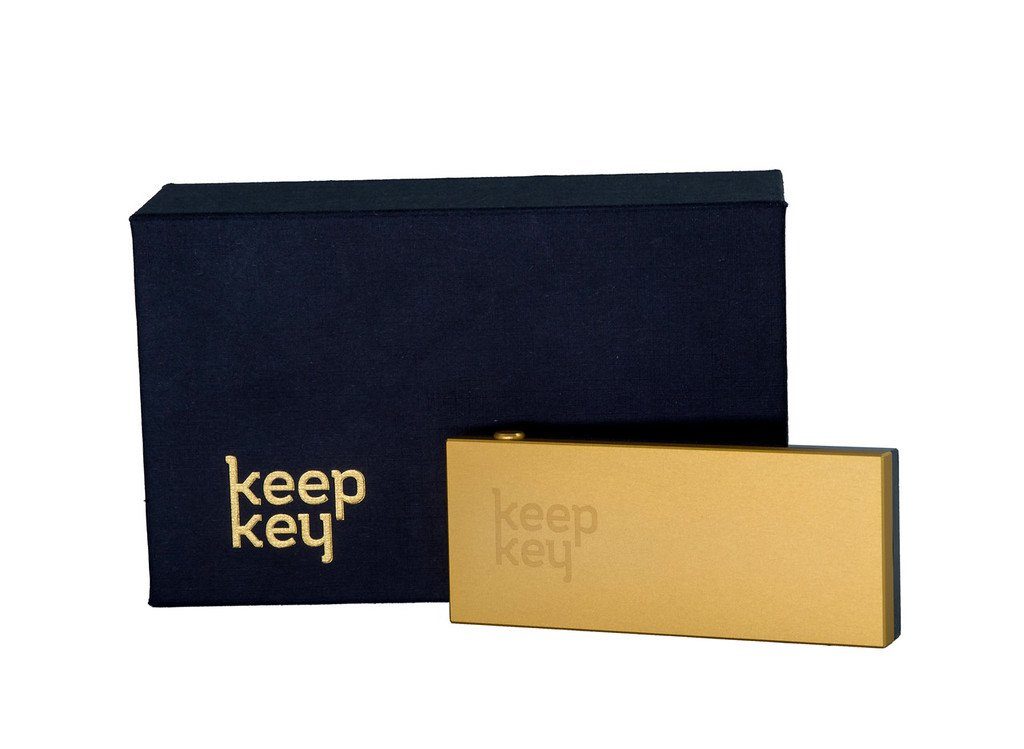

BOTTOMLINE:
This just goes to show that it’s only a matter of “when”, not “if” exchanges will reveal some mishaps and people start to panic. You do not have these issues when you have a hardware wallet, and you can even keep your USDT on a KeepKey device, which I’ve been testing in their new unified beta platform. I strongly recommend visiting our “SHOP” page at the top to get one now directly from these companies. Just remember as Andreas Antonopolous said: “Not your keys, not your bitcoin”.
What do you think? Do you think Bitfinex has made a big mistake like this for the last time? Please let me know in the comments!
Cheers,
The Crypto Renegade
NOTE: This post may contain affiliate links. This adds no cost to you but it helps me focus on giving as much value as possible in every single post by being compensated for recommending products that help people succeed.
QuadrigaCX Fails to Find $195 Million in Missing Bitcoin & Other Altcoins, Canadian Court Approves Bankruptcy
QuadrigaCX fails, the troubled Canadian cryptocurrency exchange, has failed to locate millions in customers’ missing cryptocurrency assets since the company’s owner died suddenly in December of 2018. On Monday, Nova Scotia Supreme Court Judge Michael Wood ruled that Quadriga Fintech Solutions Corp, the holding company, can begin bankruptcy proceedings.
Approximately 115,000 customers are owed $195 million USD in cash and cryptocurrencies, including Bitcoin and Ethereum, following the death of Quadriga’s founder Gerald Cotten. The exchange says Cotton did not reveal to anyone in his organization the private keys that access the cryptocurrencies on his private wallet. To those who did not know the details of the founders death, he died in India following complications from Crohn’s disease.


Quadriga’s court-appointed auditor Ernst & Young issued an April 1 report, asserting that creditors may benefit from the bankruptcy proceedings with the potential sale of the company’s assets, including but not limited to Quadriga’s operating platform.
In March, Michael Wood granted the Canadian crypto exchange a 45-day extension to find more than $100 million in lost Bitcoin, Ethereum, Bitcoin Cash, Bitcoin SV and Bitcoin Gold.
The court also approved a freeze on accounts held by Cotten’s widow, Jennifer Robertson, and the Cotten estate, including Robertson’s trusts and businesses.
Robertson says that her husband’s death was “sudden and unexpected”, refuting conspiracy theories that Cotten is still alive and that his death was a ruse to escape financial troubles.


QuadrigaCX was believed to be Canada’s largest cryptocurrency exchange, but following the death of Cotten, Ernst & Young says the company’s cold storage wallets are empty.
The next hearing is scheduled for April 18 to address issues involving credit protection and third-party payments processors.
This just goes to show that leaving your private keys on an exchange is very risky business. Do yourself a favor and store them on a trusted hardware wallet that is under YOUR control. Click here to see the latest offers directly from Ledger for an entry level hardware wallet.














